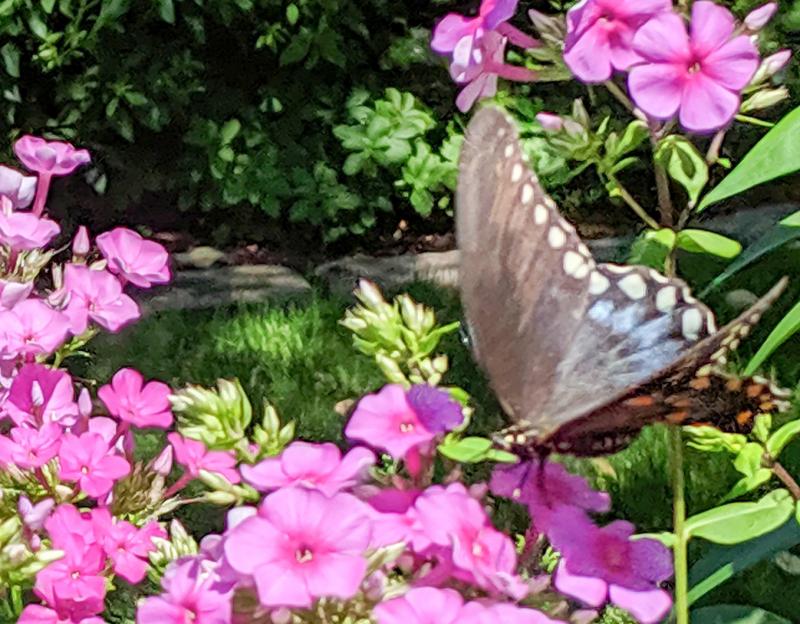Pollinators keep the world alive doing many important tasks in a garden. Pollinators are also beautiful and interesting, worth encouraging and protecting.
Mill Pond Garden hosts many pollinator plants and recommends Cape gardeners consider some tips for success and for greatest positive impact.
Located at 31401 Melloy Court, Lewes, Mlll Pond Garden will be open for visitors to see a peak of pollinator activity from 10 a.m. to 12:30 p.m., Sunday, Aug. 15, with ticketed admission; visit millpondgarden.com for details.
The first recommendation is to select plants blooming at different times so there is a continuous supply of nectar for pollinators, and some host plants for caterpillars throughout the season. Consider planting flowering plants that attract pollinators for the whole growing season, March to December. The kinds of flowers chosen need to be varied to feed and attract the many types and sizes of pollinators. Some, like the parasitic wasps that control insect pests in gardens, and the tiny bees and flies, need very small, flat flowers like those on many herbs.
Remember that butterflies are not the only pollinators, even if the prettiest ones. Bees are far more important in the scheme of nature’s needs for fertilization, fruiting and forming seeds. There are over 200 native species of bees in Delaware, and they all need help, along with many types and sizes of wasps and flies that pollinate. While they eat nectar for energy, they are also voracious predators of the insects that feed on, and damage, foliage plants and stems.
To help the pollinators, especially the little ones, it is necessary to leave them and their eggs to winter over in your garden. Leave your beds un-tidied until the spring. When you clean up the beds, don’t toss the cut stems of perennials, but instead pile them in corners or edges so the eggs cases can hatch out to protect the garden again from pest insects.
To help pollinators most, consider not spraying any insecticides, and especially the mosquito-control chemicals which kill the good insects as well as the bad. The mosquitoes will repopulate fast, but the beneficial insects will not. The population of butterflies has been dropping very fast locally with the increase of mosquito-control chemicals. The most effective mosquito-control measures are easier and safer than insecticides, and free. A dry garden has no mosquitoes. Clean up and remove all items in the garden that trap water, even upside-down bottle caps, and there will be no place for mosquitoes to breed.
A small pond without fish will house frogs and amphibians that benefit your garden, and also attract beautiful damselflies and dragonflies to breed and lay eggs. Their larvae feed on any mosquito larvae in the pond, and when they hatch as adults, they fly around hunting mosquitos. Nature provides balance. Small water features also attract and benefit birds, frogs, salamanders, and small wildlife.
To help butterflies and increase caterpillar larvae, offer other help besides their nectar and host plants. Provide a potted plant tray with a handful of horse manure in it and some water so that the water puddles up with the leached nutrients. Male and female butterflies both need those nutrients for breeding. Wet is important because the butterflies suck their nutrition though their straw-like proboscis, which only works for liquids. Butterflies also like the sugars and vitamins in wet fruit, a good choice being a small slice of fresh watermelon on a tray replaced every few days from July to August, prime butterfly breeding season.
Mill Pond Garden is a small, holistic botanical garden, also a Certified NWF Wildlife Habitat, on Red Mill Pond offering inspiring beauty and design as well as professional gardening and horticultural information for the Cape Region and Zone 7 gardeners.






















































